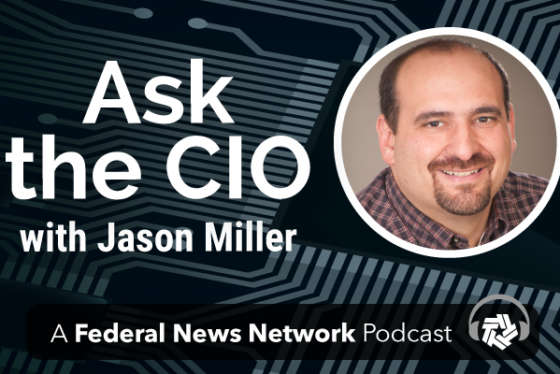Office of Government Ethics enhances network to spur productivity
Ty Cooper, the OGE chief information officer, said a new voice over IP, virtual desktop interface and the move to Windows 7 will enable employees to take advantage...
The Office of Government Ethics is bringing WiFi to its employees and visitors in the next few months. That may not sound like a big deal, but for OGE it’s a security and budgetary victory of sorts.
Ty Cooper, the chief information officer of the Office of Government Ethics, said the budget victory was probably the hardest to overcome. But with a move to a new Voice over Internet Protocol (VOIP) system, Cooper said the time is right.
“Security is our top priority, and we needed to have a site survey to make sure we had the proper coverage,” Cooper said. “The other thing was budget. We finally got to the point with this new phone system priced reasonably and they do wireless and have wireless phones, so it makes sense to bring it all together. I like the idea of integration. We will have a system that is integrated rather than different layers and things that plug in that may not be compatible. It’s all integrated so it should all work — fingers crossed — seamlessly.”
He said OGE will have two wireless networks — one for employees and one for visitors.
One way the agency will ensure security of the new wireless network is by not letting employees bring their own devices on the employee-only network.
OGE was an early adopter of VOIP, but Cooper said the upgrade will provide a host of new capabilities in addition to the wireless network.
Cooper said those capabilities include 24-hour helpdesk support, instant messaging and the ability for employees to take their phones with them anywhere in the office and listen to their voicemails through a Web browser when they are out of the office.
The VOIP improvements are part of a broader effort to make OGE’s network more effective, efficient and secure.
Cooper said the agency recently moved to the PC over IP technology and implemented zero client desktop setups.
“It’s a new protocol that is more robust than Remote Desktop Protocol (RDP). RDP is a couple of decades old, and the functionality it provides is very limited. It’s OK for a kiosk where someone will go interact at an airport, but for someone who is trying to replace a computer, it doesn’t support the robust video that we expected,” he said. “We had a lot of problems with USB printers, for example, with RDP. PCIP is much better with USB. We had thumb drives that didn’t work. We still have issues with USB printing, so we are moving in the coming months to TCIP printing. We are going to connect our printer to our network.”
Part of this network improvement program is the installation of a virtual desktop interface (VDI).
“There are many benefits of VDI and I think it’s why people are moving toward it. It enhances productivity and reduces costs,” Cooper said. “Employees don’t have to do the file transfer protocol anymore to connect from the outside to their files. They couldn’t get to their PCs, now they can from government furnished notebooks. They also can access their OGE computers from personally owned laptops using a USB secure client we have purchased.”
He added on the back end of the network, VDI makes it easier to move employees from one office to another, to increase storage capacity and to add a new server.
“We’ve reduced the time it takes to perform routine maintenance tasks significantly. When you are in the network world, maintenance is what you do every day,” Cooper said. “The time to repair a faulty desktop, to reinstall a corrupt operating system, to remove spyware or adware, anything that causes a system to need to be replaced, has been reduced dramatically. In the past we needed 45 minutes at the least or usually up to an hour to repair a desktop that needs to be wiped or reconfigured. Now it takes only 15 minutes. That’s a significant savings for us and our customers. The cost of purchasing and replacing a zero client device is a fraction of a cost of a desktop PC. Zero client devices have no moving parts, so they traditionally have a longer life cycle and require less maintenance than a PC.”
Another piece to the network upgrade is moving to Microsoft Win 7 from Windows XP in the next six months.
“We, meaning IT, have been wanting to move for a while, but the budget pressures force us to make decisions about what we want to do with our money. Are we going to keep employees on board and focus on the mission or lay people off a day a month? So we decided we would keep people employed and keep the mission moving forward,” Cooper said. “We do have a migration strategy. We haven’t done a lot of work on that yet as far as testing. But we have a plan in place and we have people to help us to migrate.”
RELATED STORIES:
Office of Government Ethics retooling network to meet demands
Office of Government Ethics seeks stricter gift rules
Copyright © 2025 Federal News Network. All rights reserved. This website is not intended for users located within the European Economic Area.
Jason Miller is executive editor of Federal News Network and directs news coverage on the people, policy and programs of the federal government.
Follow @jmillerWFED







